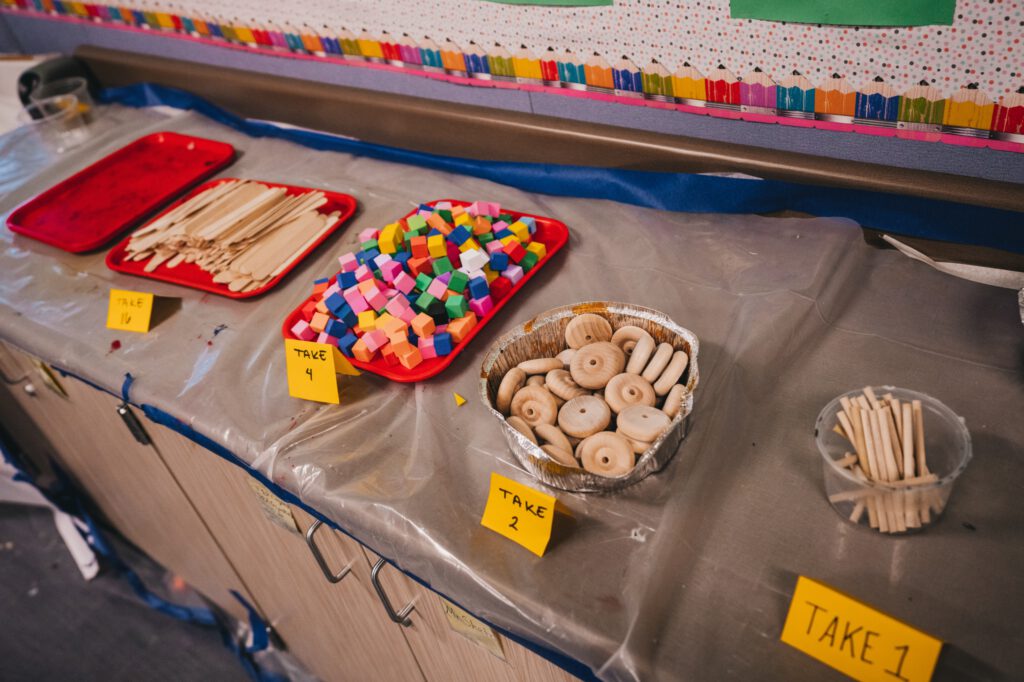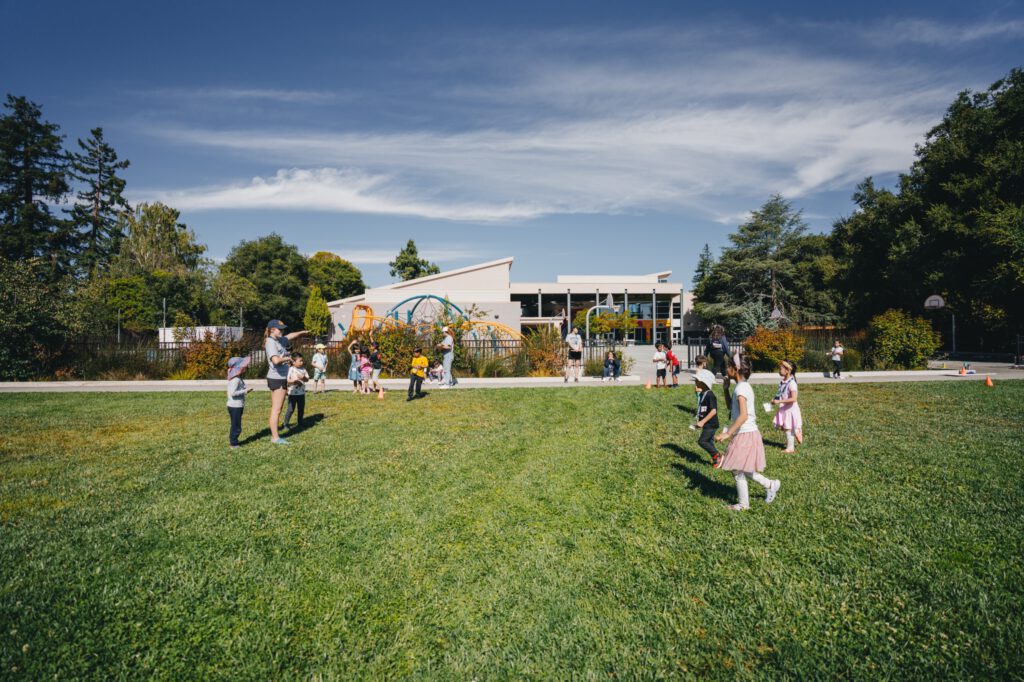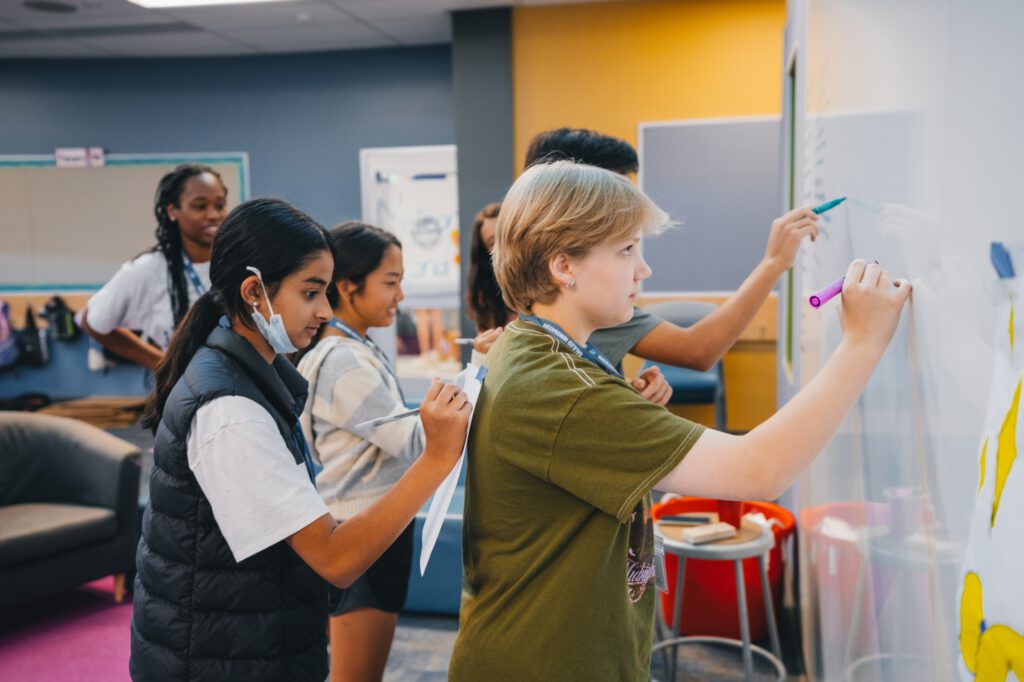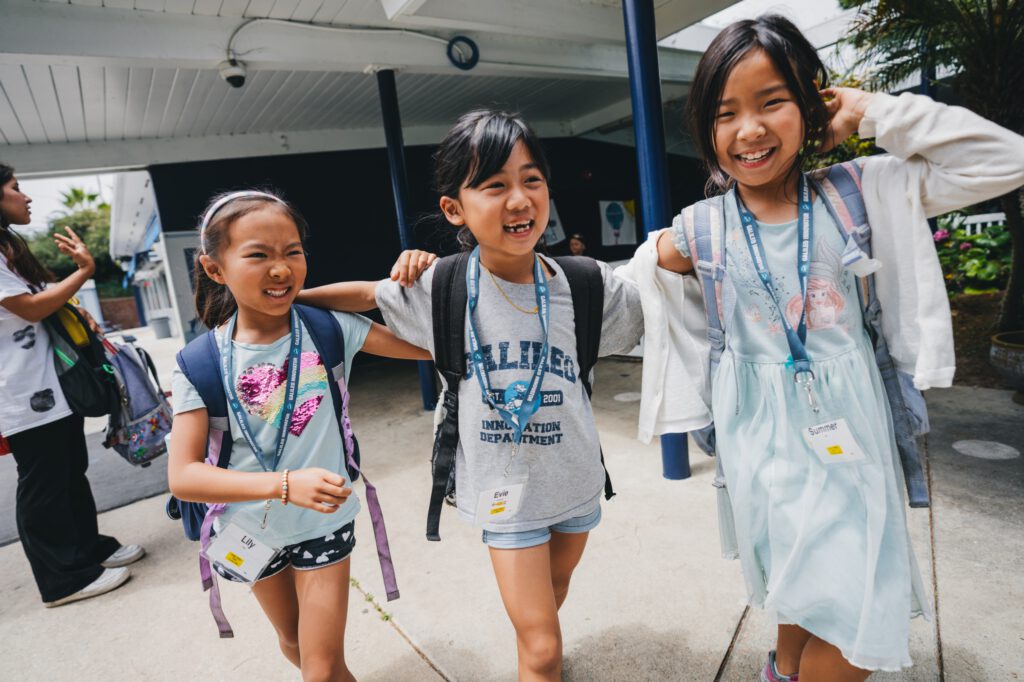Food is sustenance, our primary energy source. The kitchen, where we prepare it, is the heart of our homes; it’s the place where we gather and hang out. But the kitchen is also a laboratory stocked with high-tech equipment, where ingredients are combined in precise proportions and chemical reactions take place. Its tools and measuring devices allow for temperature control and quantification. At the same time, the kitchen is an artist’s studio where colors and textures are mixed, where flavors layer and aromas mingle.
In recent years, the kitchen has also taken on a new life in Chicago. The city was named Restaurant City of the Year for 2017. Though long renowned for its diverse and interesting food scene, the city received the honor for an abundance of daring new restaurants. The windy city, where innovative restaurateurs have successfully merged the art and science of cooking, is an inspiration for those hoping to make their mark in the kitchen. Is it any wonder kids are drawn to all that the world of food has to offer? It’s here, at the intersection of science and art, where kids can encounter Chefology, a cooking summer camp in Chicago for kids, where they not only learn the mechanics of cooking but gain an appreciation for the craft.
The Kitchen as a Science Lab
Cooking is science by definition. The combination of ingredients to create mixtures and compounds resulting in physical and chemical changes is chemistry, for sure. Mixing ingredients in new combinations and varying proportions results in unique, and potentially delicious, results. Learning to harness this potential is a valuable life skill.
Safety is paramount in every laboratory, and the kitchen is no exception. Mixing ingredients and applying a heat source mediates chemical change. Though few kitchen reactions are toxic or explosive, there are dangers inherent in food science. New chefs must develop a healthy respect for the tools and appliances that are required for their work but which can present hazards if misused.
- Heat safety: Since cooking often requires the introduction of heat to increase the rate of a chemical reaction, an introduction to oven and stovetop safety is essential. Working with a gas stove requires additional safety precautions with open flames.
- Sharps precautions: Kids need to adopt the prep skills of pros. Techniques like folding the fingers under when chopping vegetables with a knife can help prevent nicks and cuts to the hands.
- Microbiology: From proper handwashing to the cleanliness of utensils and tools, cooks are responsible for protection against food-borne illness. Understanding the need to wash and prepare ingredients without cross-contamination is another valuable skill.
Safety fundamentals are not the only parallel between the kitchen and the lab. Much like in science, cooking requires skill in measurement precision. Practice with measuring devices like cups and spoons involves reading a scale and learning to level. Reading a thermometer and using a temperature probe are additional life skills that will benefit kids in the long term. When kids are able to test and experiment in a safe, controlled environment, they gain essential knowledge as well as the opportunity to create totally delicious results!
Ingredients as an Artist’s Palette
Part of the magic of the kitchen is that it is not just a laboratory—it’s also an artist’s studio. Imagine creating a story, evoking emotions, or sparking memories with only ingredients as the medium; that is the artistry of cooking. Much like visual and performance art, food presentation and flavors are meant to be appreciated with the senses. Experimenting with unique combinations will help kids arrive at winning dishes worthy of praise for both taste and presentation. Some crucial creative aspects of cooking include:
- Variation: By varying the colors, flavors and garnishes in creative ways, kids can innovate the sights, scents and tastes of their kitchen creations. Focusing their imaginations on a variety of ingredients lets kids customize dishes for holidays and special occasions. Since many foods, especially fruits and vegetables, are vibrantly colored, they provide a lively palette for budding kitchen artists to explore.
- Design Thinking : Applying design thinking to food preparation helps kids envision original recipes that tempt the taste buds. A workshop atmosphere where trial and error are expected will grant them freedom to taste, and when they fail, to revise the recipe and try again.
- Collaboration: Cooking, entertaining and eating are social endeavors. Kids will enjoy working side by side with their teammates as they learn from each other, share strategies, taste test and give feedback.
- Aesthetics: Since we eat with our eyes before ever tasting our food, visually appealing dishes can make our mouths water before we even try them. Attention to styling and plating kitchen creations can truly elevate a dish.
Unleash Innovation and Creativity in the Kitchen
Some kids are notoriously picky eaters. Then there are those who, having been exposed to a variety of foods and flavors at a young age, develop an adventurous palate. Involving kids in cooking is a surefire way to expand their outlook and encourage healthy eating. Whether they are keen on becoming chefs and restaurateurs or merely interested in feeding themselves and their families, a summer cooking camp will provide an adventure with purpose.
Galileo camps will offer summer adventures for young Chicago food enthusiasts at our Winnetka location in 2018. Kids entering 5th – 8th grades will explore the art and science of cooking through the Galileo Summer Quest Chefology major. Putting a healthy and creative spin on the most important meal of the day is the focus of the Breakfast Club, a week long camp which highlights the use of ordinary breakfast foods to make extraordinary creations. In the process, kids will apply microbiology to raise yogurt cultures and food stylist artistry to create colorful presentations before dazzling their family and friends with their own creations at week’s end. A second option will tempt dessert lovers. The Supreme Sweets major will give kids the opportunity to be pastry chefs for a week. They will experiment with confections ranging from gourmet popsicles to elaborate pastries, then finish the week with a showcase of their unique works of art.
Whether kids have aspirations to cook for others or simply want to feed themselves, a cooking summer camp can arm them with the scientific principles and safety guidelines they need to get started. An innovation camp, such as Galileo Summer Quest, will also unleash the artistry and creativity needed to make unique and noteworthy creations that will wow their family and friends. They will learn to persevere through the fails and celebrate sweet success. Who knows—a next-generation food genius could be as close as your kitchen.



